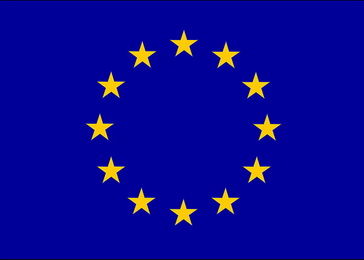 European Commissioner Johannes Hahn, presenting the annual progress reports for Western Balkans countries and Turkey in their accession to the EU on 10 November, said that “Serbia made huge steps on its road towards the European Union, bringing it closer to the opening of the first chapters in the membership negotiations”. Hahn noted there is “full hope” that Serbia will open the first chapters in its EU accession negotiations by the end of the year. The Commissioner for Neighbourhood Policy and Enlargement Negotiations noted that Serbia completed action plans for key chapters in rule of law, achieved important agreements with Kosovo and undertook steps for establishing regional ties.
European Commissioner Johannes Hahn, presenting the annual progress reports for Western Balkans countries and Turkey in their accession to the EU on 10 November, said that “Serbia made huge steps on its road towards the European Union, bringing it closer to the opening of the first chapters in the membership negotiations”. Hahn noted there is “full hope” that Serbia will open the first chapters in its EU accession negotiations by the end of the year. The Commissioner for Neighbourhood Policy and Enlargement Negotiations noted that Serbia completed action plans for key chapters in rule of law, achieved important agreements with Kosovo and undertook steps for establishing regional ties.
Regarding the migrant crisis, the Commission report states that Serbia needs to continue approaching the refugee crisis in a constructive manner in cooperation with the EU, and to improve its refugee reception capacities, but also to work on resolving the issue of unfounded asylum requests its citizens are submitting to the EU.
Under chapter 24 Serbia has overall achieved “a certain degree of readiness” to apply the acquis. “Certain improvement”, representing the medium value on a scale of five degrees, was achieved particularly in combating terrorism and drug trade.
Serbia made new agreements and continued, more or less successfully, to implement previous ones made with Priština, the EC report assesses. Serbia is still dedicated to the application of the Brussels Agreement from April 2013 and the normalization of relations with Kosovo, with whom in August it made four key agreements as part of this process, the report states.
Serbia harmonized its policy in foreign, security and defence policy, when invited to do so, with 26 of the 40 EU declarations and Council decisions, the EC assessed. This means a harmonization of 65% compared to 62% during the previous year, states the segment of the report on the progress of Serbia towards the EU for 2015 regarding chapter 31 on foreign, security and defence policy.
Serbia responded well to issues of budget deficits, the labour market and business environment, but fiscal imbalances are still high, and the lead sectors of the economy still require reforms, assessed the European Commission. The EC stated that Serbia, in accordance with EU recommendations in the field of economy from May 2015, needs to dedicate particular attention during next year to efforts for reducing the budget deficit and public debt, the development of the private sector through the restructuring and privatization of state enterprises, resolving the problem of stagnation in the growth of credit, as well as uncollectable loans, and the implementation of the reform of the public administration.
Regarding the capacity to sustain the pressure of competition and market forces within the European Union, the EC assessed Serbia to be moderately ready. It states that Serbia made certain progress in the further opening of the labour market and providing support for the development of small and medium enterprises. However, the educational system of Serbia is still inefficient, the infrastructure is underdeveloped, and grey economy and state aid are still considerable.
Source: Beta, EurActiv.rs
 Government of the Republic of Serbia
Government of the Republic of Serbia














 pdf [271 KB]
pdf [271 KB]
Leave a Comment